Northern Aral Sea Development and Revival Project
In the international tender
announced within the framework of the "Northern Aral Sea
Development and Revival Project", financed by the World Bank, in
which 44 companies took part, the winning consortium «Eco-Spectri»
LTD (Georgia) and I/E «Diamond» (Kazakhstan) on September 1, 2022
concluded a consultation service agreement with the project
implementing agency, the Ministry of Ecology, Geology and Natural
Resources of Kazakhstan. Based on the said agreement, the tender
winning consortium will prepare the following documents under the
project: (i) Environmental and Social Impact Assessment Report,
(ii) Resettlement Action Plan, and (iii) will prepare and implement
Stakeholder Engagement Plan.
The Aral Sea catastrophe is one of the most famous environmental problems worldwide. The Aral Sea, once the world's fourth largest lake, began to dry up in the 1960-s after the waters of the feeding rivers of Syrdaria and Amudaria, were diverted to the „Soviet irrigation projects”. As a result, the Aral Sea split into two, northern and southern waterbodies, the Sea surface decreased by 3/4 and the water volume decreased by 90%; the water salinity increased from 10% to 200%, and the coastline retreated by 100-150 km. All this had catastrophic consequences for the environment and economy of the Central Asian countries and a negative impact on the well-being and health of millions of people living in the area.
Following the scales, urgency and importance of the project, from September 19 till October 10, 2022, the consortium members held the first working meetings with the heads of organizations, involved in the implementation of the project, and other stakeholders.
The working meetings were held with the representatives of the Kyzylorda Akiamit (Region) of the Republic of Kazakhstan, of the municipality of the city of Aralsk and "YEKOM Consulting Engineers" – the designer company, of the head office of the Fund of Aral Sea Rescue in Almaty and the Kyzylorda branch, non-governmental organizations involved in the project, and the World Bank Mission funding the project. During the meetings, all project alternatives were discussed, their pros and cons were evaluated, and the implementation methods and timeline were planned.
The Aral Sea catastrophe is one of the most famous environmental problems worldwide. The Aral Sea, once the world's fourth largest lake, began to dry up in the 1960-s after the waters of the feeding rivers of Syrdaria and Amudaria, were diverted to the „Soviet irrigation projects”. As a result, the Aral Sea split into two, northern and southern waterbodies, the Sea surface decreased by 3/4 and the water volume decreased by 90%; the water salinity increased from 10% to 200%, and the coastline retreated by 100-150 km. All this had catastrophic consequences for the environment and economy of the Central Asian countries and a negative impact on the well-being and health of millions of people living in the area.
Following the scales, urgency and importance of the project, from September 19 till October 10, 2022, the consortium members held the first working meetings with the heads of organizations, involved in the implementation of the project, and other stakeholders.
The working meetings were held with the representatives of the Kyzylorda Akiamit (Region) of the Republic of Kazakhstan, of the municipality of the city of Aralsk and "YEKOM Consulting Engineers" – the designer company, of the head office of the Fund of Aral Sea Rescue in Almaty and the Kyzylorda branch, non-governmental organizations involved in the project, and the World Bank Mission funding the project. During the meetings, all project alternatives were discussed, their pros and cons were evaluated, and the implementation methods and timeline were planned.




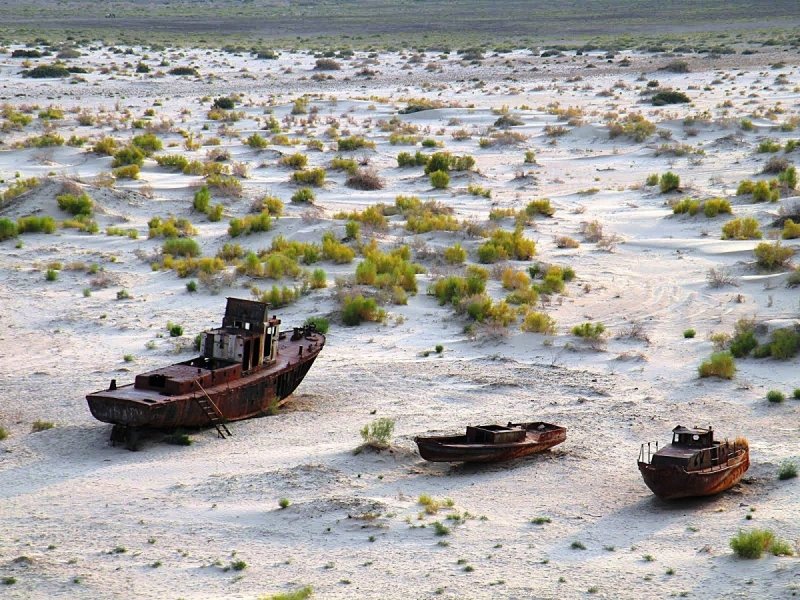
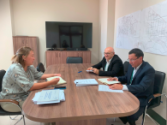
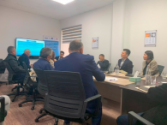
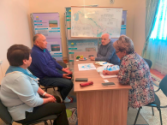
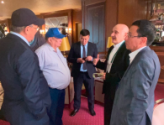
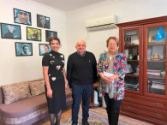
Join Us